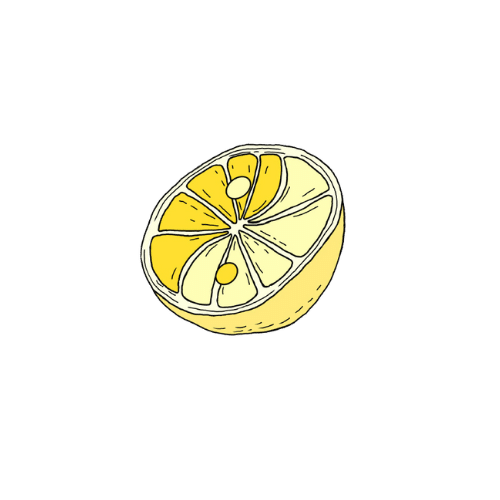Frequently Asked Questions
Acupuncture is a therapeutic technique rooted in Traditional Chinese Medicine (TCM) that involves inserting thin, sterile needles into specific points on the body, called acupoints. These points correspond to pathways known as meridians, which regulate the flow of energy or Qi (pronounced “chee”) throughout the body.
Acupuncture aims to restore balance to the body by unblocking or redirecting qi flow. Disruptions in the flow of qi can lead to illness, pain, and other health issues.
In modern medical contexts, acupuncture is thought to stimulate the nervous system, promoting the release of endorphins and improving blood circulation, which helps reduce pain and inflammation.
Yes, acupuncture is safe when performed by a licensed acupuncturist.
Licensed acupuncturists undergo over four years of supervised training and must pass multiple exams focused on medicine and safe needling techniques. Choosing a licensed acupuncturist ensures both safety and proper hygiene in every treatment.
Initial appointments are usually 1-1.5 hours. We will go over your health history and develop a treatment plan.
Follow up visits are 45-60 minutes.
No, acupuncture needles are never reused. Each needle used for treatment is sterilized and professionally packaged. After your treatment, all needles are disposed of safely in a medical biohazard container.
Cupping is a traditional healing practice that involves placing cups on the skin to create suction.
Cupping reduces muscle tension and tightness, improves blood flow and circulation, increases range of motion for injuries, decreases injury down time, improve the immune system, and is great for common cold relief.
Yes, cupping is safe when performed by a licensed professional.
Your first session includes a consultation, treatment, and customized treatment plan.
We suggest you wear loose comfortable clothing.
It is highly suggested to eat before treatments! Never come to your appointment hungry or too full. Please eat a meal a couple hours before your appointment.
Acupuncture balances hormones, regulates menstrual cycles, reduces stress, and improves blood flow.
If you are undergoing IVF or IUI, acupuncture can complement the treatment by:
- Increasing implantation rates during an IVF embryo transfer
- Increases pregnancy rates
- Enhances egg quality & increases ovarian responsiveness
- Enhances uterine lining and reproductive hormones
- Reduces stress, anxiety, and medication side effects if used
The frequency of your acupuncture sessions will depend on your specific condition and personal needs. Generally, a typical treatment plan involves weekly or bi-weekly sessions for 6 to 12 weeks, followed by a reassessment.
Acupuncture is a cumulative therapy, so consistency is key to achieving optimal results. Once you and your acupuncturist are pleased with your progress, you can transition to a maintenance plan, which involves less frequent treatments.
Yes, we offer virtual herbal consultations.
We are primarily a cash-based clinic. We do accept HSA/FSA payments. We are able to provide Superbills for our patients to submit directly to their insurance company for policies that allow patient reimbursement.
Brooke is in network with United Healthcare Optum under Allen Acupuncture. If you would like to verify your benefits, please do so here.
Gastro-intestinal
- Gastritis
- Indigestion
- Nausea and vomiting
- Constipation/diarrhea
- Digestive and Abdominal pain
- Colitis
Gynecological & Hormonal
- Infertility
- Menopause
- Diabetes
- PMS
- Morning sickness
- PCOS (polycystic ovarian syndrome)
- Heavy, painful, and/or irregular periods
- Amenorrhea (lack of period/missed periods)
Heart & Circulatory
- Palpitations
- Poor Circulation
- Numbness
- Hypertension
Wellness
- Fatigue
- Stress
- Insomnia
- Emotional Balance & Regulation
- Depression
- Anxiety
- Side effects of radiation & chemotherapy
Respiratory & Immune
- Sinusitis
- Bronchitis
- Asthma
- Allergic rhinitis
- Common cold, flu, and cough
- Rheumatoid Arthritis
Musculo-skeletal
- Arthritis and Joint Problems
- Headache and Migraines
- Back pain/ Low Back Pain
- Neck pain/Neck stiffness
- Shoulder pain/Shoulder stiffness
- Carpal tunnel syndrome
- Sciatica
- Sports injuries/ sprains
- Tendonitis/tennis elbow
- Post-operative pain
- Peripheral neuropathies
- Bell’s Palsy, Facial palsy (early stage)
- Post-operative pain
- Intercostal neuralgia
- TMJ (temporomandibular joint disorder), Jaw Pain
- Meniere’s disease/dizziness
- Trigeminal neuralgia/li>
Kidney/Bladder
- Stress incontinence
- Recurrent lower urinary tract infections (UTI)
- Urinary retention
Ear, Nose, Throat
- Tinnitus
- Conjunctivitis
- Toothache
- Post-extraction pain
- Post-extraction pain
